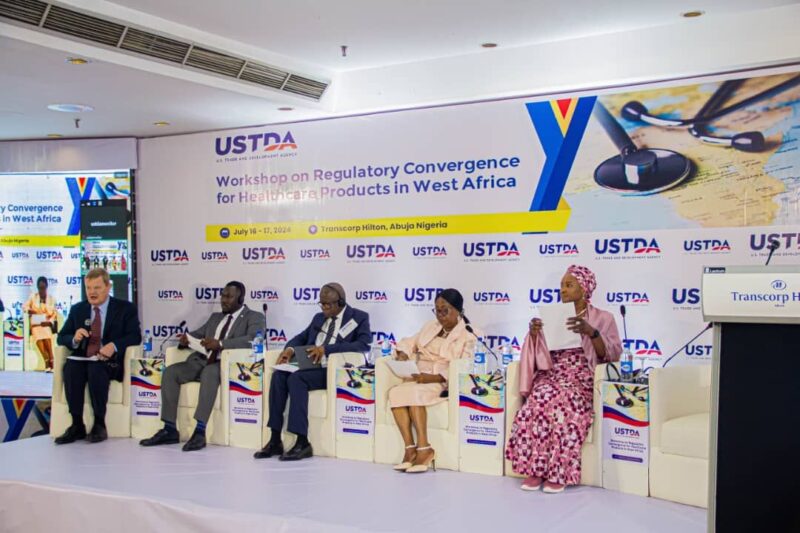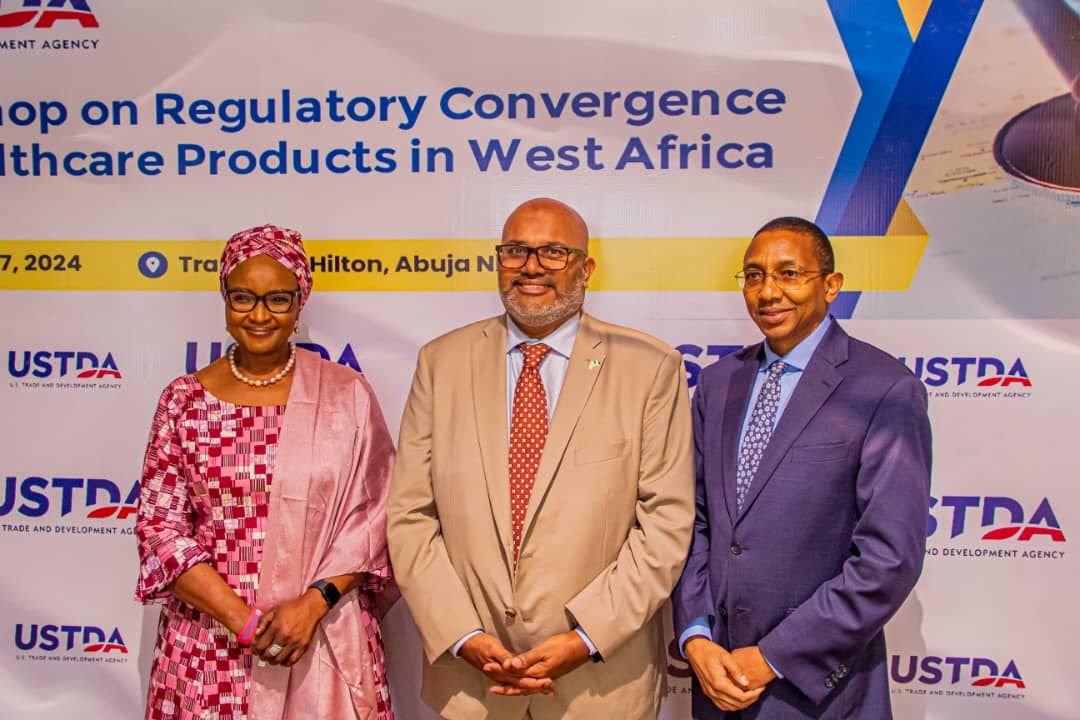Zainab Shinkafi-Bagudu shared on LinkedIn:
“Based on my experience of running a diagnostic center Medicaid Radio-diagnostics and Clinics in Nigeria for 21 years, I was invited to take part in a United States Trade and Development Agency (USTDA) Workshop on Regulatory Convergence for Healthcare Products in West Africa. In attendance was Arun Venkataraman, the Assistant Secretary of Commerce for Global Markets and Director General of the US and foreign commercial services.
Our panel discussion, ‘Distinct Frameworks between Medicine and Devices,’ provided a platform to delve into this issue.
Medical devices refer to instruments, machines, or other similar items intended for use in the diagnosis, prevention, and treatment, of disease. They achieve their intended purpose through physical means.
Pharmaceutical products, on the other hand, are substances used for medical diagnosis, treatment, or prevention of diseases. They are biological substances that exert therapeutic effects through chemical action on the body.
I presented from the perspective of providing access to diagnostic equipment like USS, mammography, CT, and MRI. In managing the center, I lead negotiations with major equipment manufacturers. I emphasized several key points as follows:
1. Standardized Frameworks: This gap creates challenges for manufacturers, regulators, and end-users, highlighting the need for a cohesive approach.
2. Policy Control: Improved policy control is crucial for guaranteeing that medical devices are safe and accessible to those in need.
3. Trained Personnel: The shortage of trained personnel in the manufacturing and operation of medical devices poses a significant challenge.
4. Equity and Inclusion: It’s essential to ensure that policies related to medical devices are developed and implemented with a focus on equity and inclusion. Disparities as noted across the country.
5. Modalities for Machine Use: The need for clear guidelines on the use of devices, training, and maintenance.
6. ISO Classifications: The importance of ISO classifications and their impact on the development and use of medical devices cannot be overstated. Few facilities are accredited.
7. Data and Human Resources: Accurate data and the right human resources are essential for supporting the development and implementation of medical device policies. Such data needs to be reliable and to key into current trends used for AI models.
By addressing these issues collectively, we can ultimately improve frameworks guiding the use of devices.”

Source: Zainab Shinkafi-Bagudu/LinkedIn
Her Excellency Dr. Zainab Shinkafi-Bagudu is the First Lady of Kebbi State, a global cancer advocate, a pediatrician, a UICC Board Member, a Founder of the Medicaid Cancer Foundation, and the Chairperson of First Ladies Against Cancer (FLAC).
Dr Bagudu is working with the state ministries of health, education, and women affairs to implement programs to sustainably improve menstrual hygiene, girl-child education, economic empowerment of women, and put an end to gender-based violence. Zainab Shinkafi-Bagudu is a member of the Editorial Board of OncoDaily.


